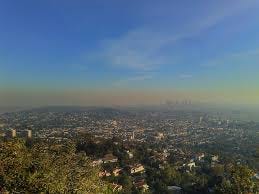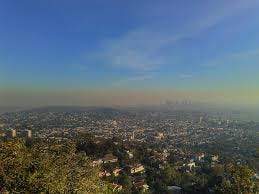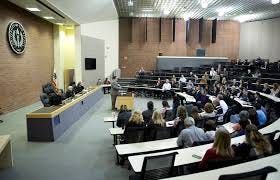Take a sneak peek at the questions for our next poll! Your feedback will help us make these questions as clear as possible when we have YouGov send them out to 500 random Californians.
Like what you see? Curious how Californians will answer? Your donation will help us make this poll happen.
Feds take aim at California clean air rules
May Day protesters hit the streets throughout the state
CA economy is #4—if you don’t take the cost of living into account
Want to work for the best California independence think tank there is?
We’re an all-volunteer organization, and we’d love it if you joined our team.
Please check out our Volunteer Jobs page and email director@ic.institute if you see a good fit!
And a big thank you to all the volunteers who’ve joined us this year!
IMMIGRATION BATTLE CONTINUES
California warns ICE: Immigration detention centers across state need ‘significant improvements’
Jenny Jarvie, LA Times
Bonta sounded the alarm as the California Department of Justice released a 165-page report that found all of the state’s six privately-operated immigration detention facilities are falling short in providing mental health care for detainees. The report documents deficiencies in medical recordkeeping, suicide prevention strategies and use of force against detainees with mental health conditions.
“California’s facility reviews remain especially critical, in light of efforts by the Trump Administration to both eliminate oversight of conditions at immigration detention facilities and increase its inhumane campaign of mass immigration enforcement, potentially exacerbating critical issues already present in these facilities by packing them with more people,” Bonta said in a statement.
GEO Group, a private company that operates four of California’s immigration detention facilities, disputed the report’s findings.
ICE raids have 'overwhelmed' coastal California communities
Andrew Pridgen, SF Gate
One notable arrest over the weekend left two children unattended after a man was taken from a gas station by what appeared to be a group of ICE agents.
Thus far, the majority of the arrests and incoming reports of ICE-related activities are centered around the La Colonia neighborhood in Oxnard, which, Basurto noted, is a neighborhood where the majority of the residents are migrant farmworkers. ICE agents have also made arrests in recent months where the individual they are seeking, identified in a photo, for example, is not the person they end up taking into custody, she added.
“The simple explanation is they are trying to meet a quota for the admiration they’re now under,” Basurto said in response to a question as to why ICE would be targeting these Central Coast neighborhoods now. “We don’t know how they work. They use tactics that are meant to intimidate and instill fear for migrant communities. ... A lot of arrests that are occurring, they don’t have warrants for them.”
RESISTANCE NEWS
100 days in, California is suing Trump at almost double the pace of his first term
Nigel Duara, CalMatters
In its first hundred days, through a series of executive orders, the Trump administration has reimagined this country’s social contract with its citizens.
The administration pledges more opportunities and fewer guarantees, less forgiveness and more consequences. Its 139 executive orders issued since Jan. 20 form an outline of American life as imagined by its most conservative residents, concentrating power in a unitary executive who can force changes as transformative as the New Deal.
The deluge means California, usually the state suing to advance a progressive agenda, now finds itself fighting in court to preserve the status quo – playing defense, not offense. Instead of arguing for higher vehicle emissions standards or broadening the definition of a waterway, the state has filed or joined 16 lawsuits against the Trump administration since Jan. 20 on issues ranging from preserving birthright citizenship to restoring billions of dollars in health and medical grants.
California sues the Trump administration for violating the Constitution—again
Liza Gross, Inside Climate News
California filed its latest lawsuit against the Trump administration Wednesday, this time for withholding billions of dollars allocated by Congress for electric charging infrastructure.
California and attorneys general from 15 other states and the District of Columbia are suing the Federal Highway Administration for trying to thwart Congress’ $5 billion program to expand electric vehicle charging infrastructure across the nation, said California Attorney General Rob Bonta at a press briefing.
“The Federal Highway Administration’s unlawful action could cost California, specifically, more than $300 million, eliminate thousands of good-paying jobs and damage a critical emerging industry,” Bonta said.
Did you know:
60% of Californians want our state to have a policy of “total non-cooperation with ICE” now that they are deporting long-term California residents with no criminal record.
77% of Californians think we should control California’s borders with other states “more like a country,” checking for illegal guns and other contraband at the border.
UC Berkeley Division of Academic Senate urges UC system to resist federal attacks
Eleanor Jones, Daily Cal
The resolution calls on the university and its campuses to reject and resist attacks by the federal government, and to protect the rights and privacy of students, faculty and staff. Approximately 95% of the 450 faculty members present at the special meeting of the Academic Senate voted to pass the resolution, according to Christopher Kutz, professor of law and the primary author of the resolution.
According to the meeting agenda, 46 people requested the special meeting be held to consider the resolution. Kutz emphasized that the resolution was a “group effort,” with contributions from the Berkeley Faculty Association, the Berkeley Initiative for Free Inquiry and other faculty members.
Two clauses of the resolution focus on privacy concerns, urging the university to protect the data of students, staff and faculty from any unlawful demands for access to that information, according to Paul Schwartz, a law professor who contributed to the resolution’s language about privacy.
'Very concerned': From Palm Springs to SF, California rallies for May Day
In the months following President Donald Trump’s second election, and amid increasing dissatisfaction with Republican-led efforts to gut key federal jobs and services, grassroots movements have gained momentum across the country. On Thursday, in honor of the day known historically as May Day, people once again poured into the streets to show their dissatisfaction..
In Los Angeles, one group gathered on Figueroa Street near Crypto.com Arena to speak out for migrant rights; another in San Diego picketed to keep schools fully staffed. In San Francisco, a rally hosted by University of California workers protested a hiring freeze imposed by the university, while another near the Civic Center rallied in support of immigrant workers. In Palm Springs, the wealthy, liberal desert city within more moderate Riverside County, outspoken Democrats organized a sidewalk rally Thursday in honor of May Day.
May Day marches and protests take over the Bay
KPIX, CBS news Bay Area
People from all walks of life protesting.
2 California campers accuse software giant of illegal ‘drip pricing’
Olivia Hebert, SF Gate
The plaintiffs, James Chowning of Oakland and Adam Fitzgerald of Yucaipa, said the practice violates Senate Bill 478, also known as the Honest Pricing Law, which took effect in July 2024. The law was designed to crack down on “junk fees,” prohibiting businesses from advertising a price that does not include all mandatory fees or charges. “Drip pricing” is banned under the law and is enforced through California’s Consumer Legal Remedies Act, False Advertising Law and Unfair Competition Law.
A business cannot advertise a “price that is less than what a consumer will have to pay for a good or service,” the California Attorney General’s Office wrote in May 2024.
Congress declares war on California’s clean air efforts
California's emission and truck standards are the most recent federal targets.
Damien Newton, Streetsblog California
This week, a bi-partisan coalition of the United States House of Representatives passed a pair of resolutions rescinding three EPA permits that allow California to regulate emission standards for diesel trucks and set sales requirements for electric personal vehicles and freight trucks.
"By passing these resolutions, the House made it clear that we won't let one state’s radical agenda dictate what Americans can drive,” testified Rep. Doug LeMalfa (R-CA), who represents the area north of Sacramento to the border with Oregon. “People deserve the freedom to choose the vehicles that works best for them—not to be forced into unaffordable electric vehicles that may not work for them.”
Because California was regulating air quality issues decades before the federal government, it is the only state that can get a waiver from the Feds to set more stringent standards. Other states are allowed to match the California standards, creating two-sets of air quality measures across the country.
MONEY MATTERS
Commentary: Other states are showing California how to protect its budget without cutting needed services
Chris Hoene, CalMatters
California has often led the nation in bold policymaking. But in this moment, other states are stepping up to protect their residents.
In this environment, California must lead. State leaders can do this by boosting revenue streams and making the tax system more fair.
Newsom and state legislative leaders should take steps through this year’s budget to protect California’s most vulnerable against mounting federal threats. That begins with aligning tax and budget policy with our values.
California gives away billions annually through tax breaks that primarily benefit corporations and high-income households. Closing these loopholes is not only fair — it’s fiscally responsible.
Commentary: Having the fourth-largest economy doesn’t matter if Californians can’t afford essentials
Aref Aziz, CalMatters
When we take into consideration the high and increasing costs of living, California is the 11th-largest economy, barely beating Italy and trailing both France and the UK, where the cost of everyday goods are about a third or less of what they are in California, as measured by the Consumer Price Index.
The price index helps us understand the average cost of everyday goods, like milk, eggs, transportation, health care and housing, for that community. Unlike GDP, it can measure inflation and gauge how expensive it is to live in one place versus another. California has led the world in this measure of expensiveness since 1997, when our price index surpassed that of the U.S.
A healthy and equitable California economy must reconcile growth with governance and dynamism with discipline. It’s not just about size. To Newsom’s credit, his administration issued a first-of-its-kind “State Economic Blueprint” earlier this year with much less pomp and circumstance than the GDP announcement in April. This transformative plan focuses on bottom-up, regional economic planning to strengthen local economies and help communities deal with the affordability crisis.
Some might call this part of the “abundance agenda,” but California’s leaders don’t need to look to distant political commentators for an agenda.
IN OTHER NEWS
When FEMA failed to test soil for toxic substances after the L.A. fires, The Times had it done. The results were alarming
Tony Briscoe, Noah Haggerty, and Hayley Smith
Although soil testing has been carried out as a precautionary measure after every major wildfire in California since 2007, this time the Federal Emergency Management Agency and Army Corps of Engineers have only agreed to remove hazardous ash and up to a 6-inch layer of topsoil from destroyed properties — but not to test what toxic substances might remain.
How concerned should homeowners be? The Los Angeles Times set out to answer that question by launching its own soil-testing initiative, modeled after the state’s sampling methodology used in previous wildfires. Journalists fanned out across Altadena and Pacific Palisades to obtain soil samples from 20 properties cleared by federal cleanup crews and 20 homes that survived; the samples were transported to a state-certified laboratory where they were tested for 17 toxic metals.
Two of the 10 Army Corps-remediated homesites in Altadena still had toxic heavy metals in excess of California standards for residential properties — including one where lead levels were more than three times higher than the state benchmark. The findings are the first evidence that — by skipping comprehensive soil sampling — federal contractors are leaving toxic contamination behind.
California Supreme Court orders state bar to revert to national exams after testing debacle
Rachel Myrow, KQED
“The Court remains concerned over the processes used to draft those questions, including the previously undisclosed use of artificial intelligence,” the state’s highest court said in a Friday order.
“In light of the particular issues encountered February,” the court lowered the total raw passing score for general bar exam takers to 534 points or higher on the essay, performance test and multiple-choice questions.
On April 25, deans at more than a dozen California’s American Bar Assn.-accredited law schools wrote to Patricia Guerrero, chief justice of the California Supreme Court, expressing “serious concerns about the exam’s fairness and validity.” The deans urged the court to release all 200 multiple-choice questions that were on the February exam and return to using the NCBE’s Multistate Bar Examination for the multiple-choice portion of the next exam.
Wilson, however, signaled Friday that California should push ahead with its own bar exam.
“As the fourth largest economy in the world, it is only right that California develops its own bar exam, and that ultimately that exam reflect the innovation, excellence, equity, and accessibility principles that are central to who we are as Californians,” she said in a statement. “We will not get there by turning backward.”
How California partners with the federal government on water and weather forecasts
Sarah Bardeen, Public Policy Institute of California
Researchers from NOAA and the National Weather Service (NWS, which is housed within NOAA) also provide the backbone of all runoff predictions in California, which is very important for the state’s water management, including water supply and flooding. They do this with help from federal partners including the US Department of Agriculture, US Army Corps of Engineers, US Geological Survey, and the National Science Foundation’s National Center for Atmospheric Research. Together, these agencies provide highly reliable, real-time measures of flow and water quality on many rivers.
Weather forecasting relies on information collected throughout the country and the world, including oceans, land surfaces, and the atmosphere. The federal government’s size enables efficiencies of scale that are hard to replicate on state-by-state basis. It’s not easy to launch and maintain a fleet of Earth-orbiting satellites and ground-based radars, and there’s no way any entity could spin this up in a matter of weeks or months.
Dust storms will get worse in California, new report says. It doesn't just harm your health
Paris Barraza, Palm Springs Desert Sun
The report, synthesizing various work, said climate change is expected to increase dust storms in California because rainfall, soil moisture, and surface winds, all of which can drive dust emissions, are projected to change with the warming planet.
Among the harms the report explores are those to our health and calls for California studies to “clarify the relevant health impacts of dust and identify the highest risk communities.”
One “key worry” is that dust in the state often carries chemicals that can lead to health problems or elevated health risks.
The report also examines how dust can impact crop yields and how dust storms can injure and kill livestock. Another concern relates to California’s snowpack: "dust deposition can accelerate snowmelt.” This impacts regions reliant on snowmelt, whether for agriculture or its water supplies, but also for ecosystems, the report explained.
ICYMI: MORE ICI ORIGINAL CONTENT
Texas v What? Debunking 5 big myths about secession
The High Price of Fear: California could defend itself for a fraction of the cost
Fire and Flood: Why California should control our own water system
Just 9 states make up more than half the U.S. population

















